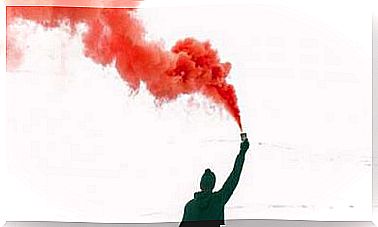Slow Life: 7 Steps To Slow Down And Live Happily
Against the culture of speed and immediacy, a Korean monk proposes stopping to see what we can only appreciate when we are not running.

In his 2004 book, In Praise of Slowness , Carl Honoré explained that he became aware of his addiction to speed while queuing to board. Although the plane was not going to leave sooner, no matter how impatient he was, he was anxious and cursed that the boarding gate had not been opened yet. Realizing his condition, he began to ask himself questions: Why are we always in such a hurry? Is it possible to slow down?
In his book, which set a trend in many countries, he quoted the doctor Larry Dossey, who in 1982 already spoke of the “disease of time” to describe the irrational belief that “time is moving away, there is not enough of it, and you have to pedal faster and faster to keep up with him. “
The “disease of time” was already described in 1982.
Four decades have passed since then and, with the stresses of the digital age, the acceleration with which we live has only increased. Under the constant bombardment that comes to us through social networks, we rush to like and share, while we walk down the street like zombies, without looking where we are going, running as if the world ended today.
And the question to ask ourselves is: Has this way of living made us freer, happier, or perhaps more effective? The answer is no”. As Carl Honoré warned already then: “Let’s not forget who won the race between the tortoise and the hare. As we rush through life, carrying more things hour after hour, we stretch like a rubber band toward the breaking point. ” Choose to lead a “slow life”, for the slow life , it will only bring us benefits.
Things you can only see when you slow down
One of the best-selling books of late in the United States explores the benefits of a more peaceful and caring life, two qualities that the Korean Buddhist monk Haemin Sunim believes go together.
In Spanish it has been translated as That which you only see when you stop and the first chapter has a very significant title: Why am I so busy? It opens with a quote from the author himself that concludes with a key question: “When everything around me is moving so fast, I stop and ask myself: is it my world that is frantic or is it my mind?”
This is a very relevant question, since speed, urgency, rush are exclusively human perceptions. The world around us is not slow or fast, it is not busy or resting; life just flows and we are the ones who decide to run or adopt a more serene pace.
Absorbed by urgencies and commitments, Haemin Sunim points out that many times we are not aware that these external mandates actually come from ourselves:
“When I look deep inside to find out why I lead such a busy life, I find that, in a sense, I like to live this busy. If you really wanted to rest, you could decline some invitations for training sessions. But I accept those requests because I enjoy meeting with those who ask for my advice. “
Therefore, that state of emergency in which we often live, many times without the pleasure of the Korean monk, we activate ourselves.
The good news, therefore, is that we too can turn off that switch and stop the race.
Living desperately busy keeps us in a permanent nervous excitement, which makes it easier for our minds to populate with distressing thoughts of the type: Will I make it on time? Did I forget something important? Have I been wrong about this or the other? What should they think of me? What do those pangs in the heart come to? Will I be sick?
Faced with such a whirlwind of thoughts, Haemin Sunim recommends that we pause for a moment to focus our attention on the present and take a deep breath. In his own words:
“Only by stopping can we clearly see our relationships, our thoughts, our pain. By stopping, we stop getting entangled in them. We can abstract ourselves and value them for who they really are. “
The real secret of success
During my last trip to India, where I spent two weeks to give lectures, I shared the stage with different speakers. One of them, a successful Bombay businessman, recounted an experience that impressed me.
He explained that he had been under hectic activity for some time to grow his business and that, before leaving for a trip to New York, where he would close one of the largest contracts of his life, his mother gave him an envelope.
“What is this, mother?” She asked him.
“Don’t open it yet,” she said. It is a gift for this important trip that you are going to do.
Intrigued, he put the envelope in his wallet and, as soon as he landed in New York, when he got out of the plane he remembered it and took it out to open it. Inside was a piece of paper handwritten by his mother with a single word : ENOUGH.
Confused, he immediately phoned his mother to explain what the gift meant.
“Easy, son,” she said. If you don’t understand it on the way out, you will understand it on the way back.
Two days later, as he flew back to Bombay, he was completely exhausted. And it wasn’t just physical and mental. After the excitement of the contract with which he was returning home, an enormous existential weariness had taken hold of him.
As he took to the skies from his first-class seat, he realized that the kind of life he once liked now overwhelmed and even bored him.
Just then he remembered his mother’s envelope and her prediction: “If you don’t understand it on the way out, you will understand it on the way back.” By having the word ENOUGH in front of his eyes again, it took on a new meaning.
He realized that, getting older, he did not want to continue down this path of rush, stress and multitasking at all hours. He could double his wealth, even multiply it tenfold, but that would not bring him back happiness.
Once in Bombay, he made a radical decision.
He would leave his business in other hands to live more slowly and dedicate himself to a mission that had been knocking on the doors of his conscience for a long time, although he did not want to hear it: to provide quality education to the most disadvantaged classes.
And not only did he regain his calm, but as he slowed down and changed his priorities, he felt a youthful energy boil back inside his body.
From that serenity, he began to use his resources to train professors and teachers who would teach their classes to groups that did not have access to that education.
The businessman finished his explanation, which had us all in suspense, with these words:
“Now I can say that I am happy.” I feel at peace with myself and I am useful to society. And I will tell you one last secret. Today, people want to be everywhere, communicate with everyone, multiply their presence. There is the illusion that this is success, but I tell you that it is absolutely false. Success is achieved precisely the opposite way: closing doors.
Only if you close the door to everything that is not essential will you be able to focus on what is really important and be successful as a human being.
Sunim mentions three steps to wholeness:
- “Stop comparing yourself to others, because you will always find someone richer, smarter or more beautiful.”
- “Stop rushing to get something or get somewhere, because you won’t enjoy anything if you rush.”
- “Calm your frenzied mind, because when your mind calms down, the world will seem calm and joyful.”
7 steps to slow down
In addition to these shortcuts, there are seven exercises we can do to slow down and regain serenity:
- 1. Question your urgencies
If you live in a permanent state of alert, start by dissecting those emergencies and questioning each one of them. Is it really that important? Is it for me or for someone else? Does this matter need me to run as much or can I do it in a calmer and healthier way?
- 2. Look at the sky
This exercise is as simple as it is effective. If you feel that you are accelerating, with the pulsations at full capacity, raise your head if you are in the street or go to a window, if you are in a building. Contemplate the piece of heaven that looks like someone who values a work of art. How does it look like? How would you define its color? What sensations does it produce?
- 3. Give up on perfection
Many times we run because we do not want to fail in anything that is expected of us, as if we had superpowers. However, with that what we achieve is to turn our life into a grueling battlefield. Nothing happens if you don’t get to everything, nothing happens by saying: “I can’t.”
- 4. Practice the “ dolce far niente ”
Stopping machines may seem like an aberration, if you think you are too busy, but it is precisely when you are under pressure that a break can be most productive. As Ovidio said two millennia ago: “Take a break; the field that has rested gives a more abundant harvest ”.
- 5. Avoid making hot decisions
The endemic rush often makes you commit to more things than you can actually do. Before giving a yes that implies increasing the load that you already have, do not rush, stop and consult with Dr. Tiempo first. Not answering immediately, thus facilitating reflection, is an excellent measure to put the brakes on.
- 6. Take a walk in the fresh air
The ancient Greeks already knew that there is no better way to slow down. When you go out to stretch your legs, your brain secretes serotonin and your mind relaxes immediately. Disconnect your mobile for a while and focus only on each step, feeling your weight on the ground.
- 7. Don’t steal hours from sleep
The worst business you can do is sleep less to save time for pending tasks, since in addition to endangering your health, your performance will be lower and, in the end, it does not pay off. As Ralph Waldo Emerson said in the 19th century: “End your day and let it go once and for all. You did what you could.”









